2024
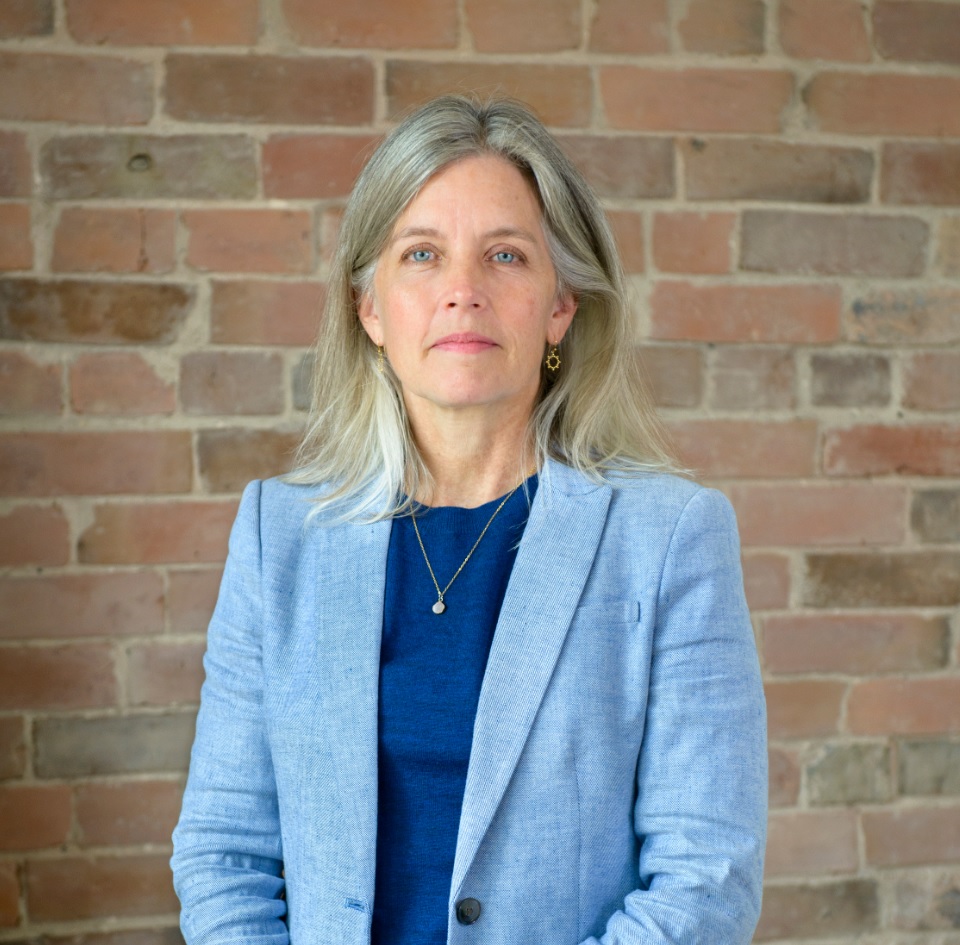
Mary Birdsell is a lawyer and the Executive Director at Justice for Children and Youth (JFCY). JFCY is a child and youth rights organization and legal clinic that protects and advances the legal, equity, and human rights of children and youth. Mary is a child rights expert and a tireless advocate, providing legal services to young people who are facing significant adversity, and have complex personal, social and legal issues. She has appeared as counsel or as intervener at every level of court on a range of child rights matters. Mary has been involved with countless community organizations, engages in law reform activities, provides public legal education, and professional development. She has been significantly involved with OBA and the CBA, including as having been Chair of the Child and Youth Law Section in each organization. She is a former Board Member of the Canadian Coalition for the Rights of Children, and is currently on the Board of A Way Home Canada. Mary is the co-author of “Prosecuting and Defending Youth Criminal Justice Cases: A Practitioner’s Handbook”, 3nd ed. 2024.
2023
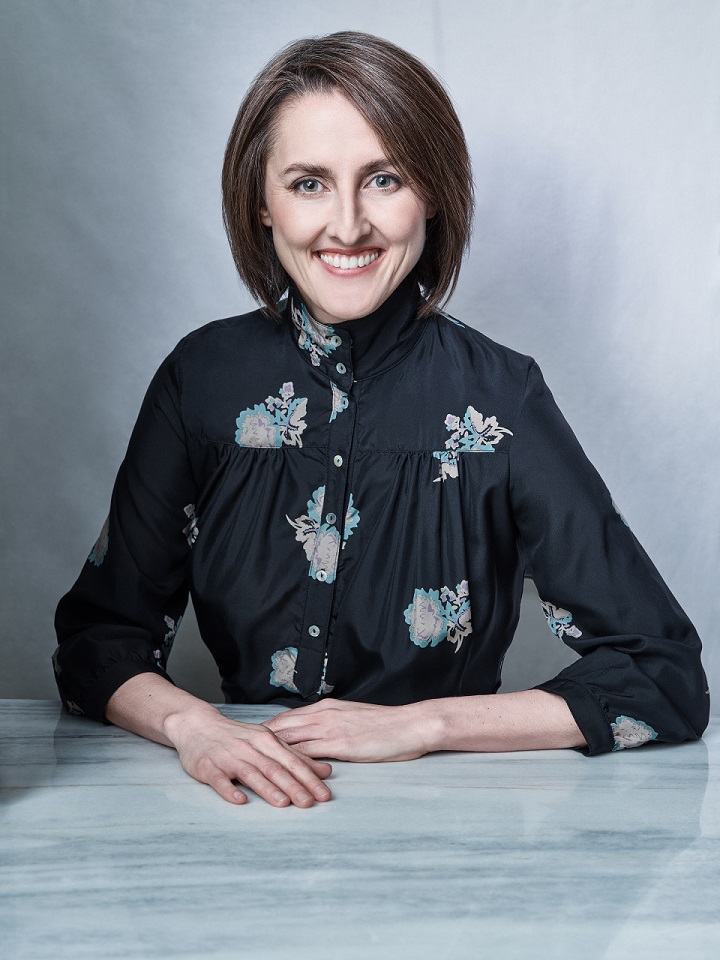 Ewa Krajewska, B.A. (McGill) 2004, LL.B. BCL (2008), was called to the Bar of Ontario in 2009. She is a civil litigator, Co-Chair of the Civil Litigation Practice Group and a partner at Henein Hutchison Robitaille LLP. She practices in civil litigation, public and administrative law, appellate advocacy, and estates disputes. She has appeared on leading cases at all levels of court including the Supreme Court of Canada, the Court of Appeal for Ontario, and the Federal Court. Ewa was a Partner at a national law firm where she represented both institutions and individuals in difficult and sensitive disputes and was the Co-Chair of the Appellate Advocacy Group. She also served as a law clerk to the Honourable Justice Rosalie Silberman Abella of the Supreme Court of Canada. She was counsel to the Canadian Civil Liberties Association on the Public Order Emergency Commission.
Ewa Krajewska, B.A. (McGill) 2004, LL.B. BCL (2008), was called to the Bar of Ontario in 2009. She is a civil litigator, Co-Chair of the Civil Litigation Practice Group and a partner at Henein Hutchison Robitaille LLP. She practices in civil litigation, public and administrative law, appellate advocacy, and estates disputes. She has appeared on leading cases at all levels of court including the Supreme Court of Canada, the Court of Appeal for Ontario, and the Federal Court. Ewa was a Partner at a national law firm where she represented both institutions and individuals in difficult and sensitive disputes and was the Co-Chair of the Appellate Advocacy Group. She also served as a law clerk to the Honourable Justice Rosalie Silberman Abella of the Supreme Court of Canada. She was counsel to the Canadian Civil Liberties Association on the Public Order Emergency Commission.
.
.
.
.
.
2022
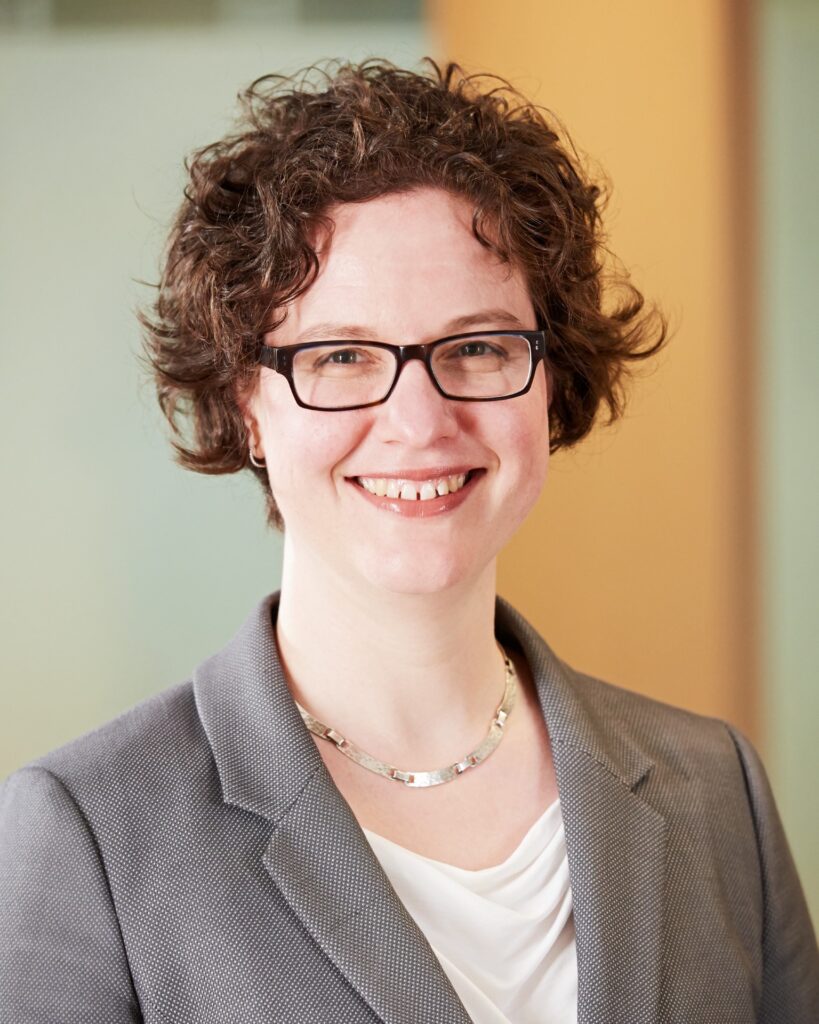 Jessica Orkin
Jessica Orkin
Jessica Orkin is a partner at Goldblatt Partners LLP in Toronto and leads the firm’s Aboriginal law practice. She has a broad litigation practice including criminal, civil and administrative law matters, with an emphasis on constitutional, Aboriginal rights and access to information law matters.
Jessica provides legal and strategic advice and advocacy to Indigenous governments, communities, organizations and individuals to advance and protect their rights and interests in interactions with governments, industry, the justice system and civil society. Her practice includes complex Aboriginal title, Aboriginal rights and treaty rights litigation; environmental assessment and regulatory processes relating to mining, infrastructure and energy projects; environmental stewardship and natural resource management, including negotiations with industry proponents; and advice on the constitutional duty to consult and accommodate. Jessica has particular expertise in relation to expressive and protest rights, including those of Indigenous individuals in the context of land and resource disputes. She also has a particular interest in systemic issues relating to the overrepresentation of Indigenous individuals within the criminal justice and carceral systems.
Jessica appears at all levels of court, including the Court of Appeal for Ontario and the Supreme Court of Canada. She has been recognized by Best Lawyers in Canada in the categories of Aboriginal law and Administrative & Public Law, and by Lexpert in the category of Aboriginal law. Jessica received her law degree from the University of Toronto. She also holds an M.Phil. degree in Development Studies from the University of Oxford, and a bachelor of arts and sciences from McMaster University. She was called to the Ontario Bar in 2006, after clerking at the Federal Court of Appeal.
2021
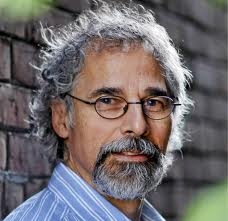
Jonathan Rudin
Jonathan Rudin received his LL.B. and LL.M. from Osgoode Hall Law School in Toronto. In 1990 he was hired to establish Aboriginal Legal Services and has been with ALS ever since. Currently he is the Program Director. Mr. Rudin has appeared before all levels of court, including the Supreme Court of Canada.
Mr. Rudin has written and spoken widely on issues of Indigenous justice. His book, Indigenous People and the Criminal Justice System was released by Emond Publishing in 2018 and won the Walter Owen Book Prize from the Canadian Foundation for Legal Research in 2019. A second edition of the book was published in July 2022.
Mr. Rudin teaches in the Masters of Law program at Osgoode Hall Law School and was the Constitutional Litigator in Residence at the David Asper Centre for Constitutional Rights at the University of Toronto Law School in the fall of 2021. He currently is one of eight people serving as Commissioners on the South Australia Advisory Commission into Aboriginal Incarceration Rates. The Commission is expected to report in early 2023.
Last but not least, he plays the mandolin and sings with Gordon’s Acoustic Living Room, a group that plays regularly in Toronto and has a number of videos on YouTube.
2020
 Nader Hasan
Nader Hasan
Nader is a partner at Stockwood Barristers in Toronto. He practises criminal, regulatory and constitutional law at the trial and appellate levels. He has an expertise in digital privacy law and search and seizure law, and has appeared in many of the leading cases in this area.
Nader has been recognized by Best Lawyers magazine as one of Canada’s leading appellate lawyers. He has appeared in 20 cases at the Supreme Court of Canada, including as lead counsel to the successful appellants in Clyde River v. Petroleum Geo‑Services Inc., 2017 SCC 40, a landmark Indigenous rights decision.
Nader is a veteran Adjunct Professor of law at the University of Toronto, Faculty of Law, where he has taught the Law of Evidence and currently teaches a popular class on crime and punishment. He also serves on the Advisory Board of the David Asper Centre for Constitutional Rights. He is a co-author of Sentencing, 9th edition (LexisNexis, 2017), a co-author and co-editor of Digital Privacy: Criminal, Civil and Regulatory Litigation (LexisNexis, 2018), a co-author of a forthcoming book on Search and Seizure (Emond Publishing), and author of numerous articles on criminal and constitutional law.
Nader brings a cross-border perspective to his practice. He previously practised with a leading litigation firm in New York, appearing in both New York State and U.S. federal courts. Today, he regularly advises Canadian citizens in relation to criminal and regulatory issues with a multi-jurisdictional dimension, and regularly advises Canadians detained abroad.
Nader acts regularly for clients seeking to vindicate their constitutional rights in high-profile cases. He has acted for the wrongfully convicted and asylum seekers. He acts for Indigenous groups and environmental NGOs in environmental and constitutional cases. He also acts for civil liberties groups, including the Criminal Lawyers’ Association (CLA), the British Columbia Civil Liberties Association (BCCLA), and the David Asper Centre for Constitutional Rights.
Nader is a graduate of Harvard University (B.A.), the University of Cambridge (M.Phil), and the University of Toronto, Faculty of Law (J.D.). Upon graduation from law school, Nader clerked for the Honourable Marshall Rothstein of the Supreme Court of Canada.
2018
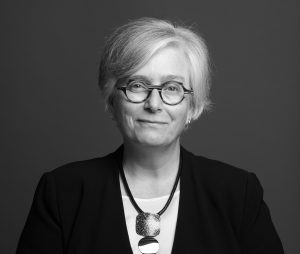 Susan Ursel
Susan Ursel
Susan Ursel is a senior partner with the law firm of Ursel Phillips Fellows Hopkinson LLP. An experienced litigator, her work includes both arbitration/trial level and appellate advocacy. Susan practices in the areas of labour, employment, pay equity, employment equity and human rights law, as well as pensions and benefits law, and insolvency law. She has practiced at all court levels including the Supreme Court of Canada, as well as extensively before labour boards, human rights tribunals and arbitration boards. In 2019, Ms. Ursel was the recipient of the Law Society of Ontario medal for her contributions to the profession.
Ms. Ursel was senior counsel to the Ontario Secondary School Teachers’ Federation in its successful Charter Challenge to Bill 115, an act which imposed collective agreements upon education sector unions in 2012. She has represented the Canadian Bar Association in its intervention in the Trinity Western University v. Law Society of Upper Canada case in both the Ontario Court of Appeal and the Supreme Court of Canada. The CBA intervened in support of the Law Society. Ultimately the Supreme Court affirmed the Law Society’s decision to deny accreditation to TWU’s proposed law school on the basis of discrimination against the LGBT community.
More recently she has represented the OSSTF in its Charter challenge to Bill 307, which amended the Election Finances Act in Ontario, which greatly restrict the participation of third parties such as trade unions in election activities. She also represented the OSSTF in its Charter challenge to Bill 124, yet another Ontario act designed to restrict collective bargaining and strike action, notable in particular for its limits on compensation to 1% per year for a collective bargaining cycle of three years, during a time of severely escalating inflation and the COVID pandemic. Both decisions are currently pending.
As ground breaking counsel seeking progressive legal change for her clients, she has appeared in the Supreme Court of Canada on such precedent-setting Charter cases as Egan and Nesbitt, the first Supreme Court decision to deal with the equality rights of gay men and lesbians; the first Trinity Western case which dealt with the issues of LGBT rights and the appropriate training of teachers; and the Chamberlain case, which dealt with the educational rights of children in gay and lesbian families.
More recently, Ms. Ursel has represented members of the transsexual/transgender communities, helping to establish essential precedents in such human rights cases as Hogan (dealing with the full availability of public health care for the trans community), XY v. Ontario (dealing with the issue of gender identification on birth certificates), and TA v. Manitoba (dealing with the issue of gender identification on birth certificates in that province.
Her work in the human rights and Charter of Rights fields stretches back almost four decades. She has acted as complainant’s counsel in a number of important human rights cases in Ontario, including the Hamilton Gay Pride Day case, the Sims case which dealt with employment rights of gay men and lesbians, and the Thornton case which asserted the employment rights of persons with HIV/AIDS.
2017
 The Honourable Breese Davies
The Honourable Breese Davies
Justice Breese Davies was appointed to the Superior Court of Justice in August 2018. Before her appointment, Justice Davies practiced criminal, constitutional and administrative law at both the trial and appellate levels. Throughout her career, Justice Davies has been dedicated to legal education. She is still an adjunct professor at the University of Toronto, teaching criminal procedure. She previously taught legal ethics at the University of Toronto. She also taught evidence at Osgoode Hall Law School for several years and was an adjunct professor at the Centre for Criminology and Sociolegal Studies at the University of Toronto for 10 years.
Justice Davies is the co-chair of the Ontario Justice Education Network.
Justice Davies was a vice-president of the Criminal Lawyers’ Association for five years. In that role, she worked on initiatives to retain women in the private practice of criminal law and to improve diversity and inclusion in the criminal bar.
In 2017, Justice Davies received the Laura Legge Award, which is presented by the Law Society of Upper Canada to recognize women lawyers who have exemplified leadership in the profession.
2016
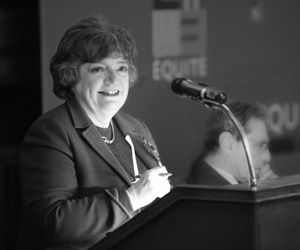 Janet Minor
Janet Minor
Called to the Bar in 1975, Minor holds an LLB from the University of Toronto and an LLM from Osgoode Hall Law School. She has worked in public law since 1977, and up until her election as Treasurer of the Law Society in 2014, was general counsel in the Constitutional Law Branch of Ontario’s Ministry of the Attorney General.
She has argued many significant cases on behalf of Ontario at all levels of court in Ontario, and at the Supreme Court of Canada. She has been a frequent speaker and participated in education programs on public law and an Adjunct Professor at both the University of Toronto, Faculty of Law and Osgoode Hall Law School.
Minor is a founding director of the Association of Law Officers of the Crown (ALOC), past director of The Advocates’ Society, and has served on the boards of the Law Foundation of Ontario and the Ontario Justice Education Network.
She was first elected as a bencher of the Law Society in 2001, then re-elected in 2006 and 2011. She was elected to the position of Treasurer of The Law Society of Upper Canada from 2014 – 2016. She was the 4th woman to hold that position and the first Treasurer from the public sector.
She has received the Women’s Law Association President’s Award (2003), the Ontario Bar Association’s Tom Marshall Award (2010), the ALOC Carol Creighton Award for Contribution to Public Law (2013), a Zenith Award celebrating leading women lawyers from Lexpert (2013), and an honourary doctorate from the Law Society in 2020.
2015
 Raj Anand
Raj Anand
Raj Anand is a partner and an arbitrator and mediator with WeirFoulds LLP. His practice includes the areas of administrative, human rights, constitutional and employment law, civil litigation, professional negligence and regulation.
In his third term as an elected Bencher of the Law Society, he is currently the Vice-Chair of the Law Society Tribunal’s Hearing Division. He was a member of task forces or working groups on admission requirements, articling, good character, Law Society governance and Tribunal reform. He was Vice Chair of the Equity and Aboriginal Issues Committee for five years, and is currently Co-Chair of the Working Group on Challenges faced by Racialized Lawyers and Paralegals in Ontario and Chair of the Three Year Review of the Tribunal reforms.
Raj graduated from the University of Toronto Faculty of Law with the Dean’s Key in 1978. He has served as President of the U of T Law Alumni Council, the Minority Advocacy and Rights Council, the International Commission of Jurists Canada, and Pro Bono Law Ontario; Co-Chair of the U of T Tribunal; and board member of the Advocates’ Society, Legal Aid Ontario, the Law Commission of Ontario, the Centre for Addiction and Mental Health, Justice for Children and Youth, and the Income Security Advocacy Centre. Raj was Chief Commissioner of the Human Rights Commission in 1988-89, Board of Inquiry from 1989-94, and founding Chair of the Human Rights Legal Support Centre in 2008-10.
Raj has taught “The New Administrative Law” at the masters level, and “Legal Ethics: Legal Values” and “Diversity and the Legal Profession” at the JD level. He was the first recipient of the Advocates’ Society Award of Justice in 1997, and has since received the Law Society Medal, the Professional Man of the Year award of the Indo-Canada Chamber of Commerce, and the South Asian Bar Association’s Distinguished Career Award. In 2013, he was an inaugural Roy McMurtry Visiting Clinical Fellow at Osgoode Hall Law School.
2014
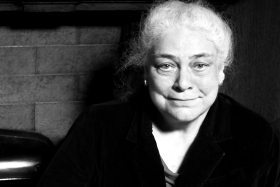 Mary Eberts
Mary Eberts
Mary Eberts received her legal education at Western and the Harvard Law School, and is a member of the Bar of Ontario. She joined a Bay St. law firm after several years of teaching at the Faculty of Law, University of Toronto, and was a partner at that firm until opening a small firm specializing in Charter and public law litigation. From this base in Toronto, she has appeared as counsel to parties and interveners in the Supreme Court of Canada, Courts of Appeal and Superior Courts in Ontario and other provinces, the Federal Court and Court of Appeal, and before administrative tribunals and inquests in Ontario and other provinces. She was active in securing the present language of section 15 of the Charter, and was one of the founders of the Women’s Legal Education and Action Fund (LEAF). She served as litigation counsel for the Native Women’s Association of Canada for over 20 years. Mary held the Gordon Henderson Chair in Human Rights at the University of Ottawa in 2004-2005 and the Ariel Sallows Chair in Human Rights at the College of Law, University of Saskachewan in 2011 and 2012, where she taught courses in test case litigation. Recognition of her work includes her appointment as an Officer of the Order of Canada, receipt of the Law Society Medal, the Governor-General’s Award in Honour of the Persons’ Case, the Queen’s Diamond Jubilee Medal and several honourary degrees.
2013
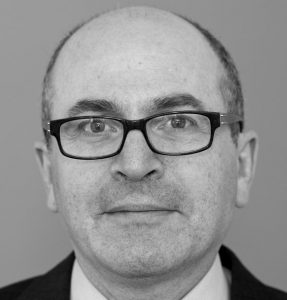 The Honourable John Norris
The Honourable John Norris
Justice John Norris was appointed to the Federal Court on February 26, 2018. Prior to his appointment, he maintained a trial and appellate practice in the areas of criminal, constitutional and national security law. He appeared as amicus curiae in several national security matters before the Federal Courts. He also acted regularly on interventions by public interest groups in appeals before the Supreme Court of Canada. He was a member of the roster of Special Advocates for security certificate proceedings under the Immigration and Refugee Protection Act from 2008 until his judicial appointment.
From 1996 until 2018 Justice Norris was an adjunct member of the Faculty of Law, University of Toronto, where he taught Advanced Criminal Law, Evidence Law, Advanced Evidence, Constitutional Law, National Security Law and Legal Ethics. He has also taught in the part-time LL.M. Program in Criminal Law at Osgoode Hall Law School.
Justice Norris is a frequent contributor to continuing legal education programs, the author of several scholarly articles, and was an Assistant Editor of the Canadian Rights Reporter for many years. He has been a Director of the Canadian Council of Criminal Defence Lawyers, a Senior Associate with the Global Counter-terrorism Law and Policy Group at the Munk School of Global Affairs, University of Toronto, a member of the Advisory Group for the David Asper Centre for Constitutional Rights, and a member of the Board of Directors of Canadian Journalists for Free Expression.
Justice Norris received a B.A. (Honours) in Philosophy from Carleton University and an M.A. in Philosophy from the University of Western Ontario. He received his LL.B. from the University of Toronto in 1991 and was called to the Bar of Ontario in 1993. In 2011, he received the Catzman Award for Professionalism and Civility from The Advocates’ Society.
2012
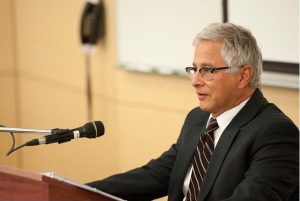 Joseph Arvay
Joseph Arvay
Our inaugural Constitutional Litigator in Residence was Joseph Arvay (March 18, 1949 – December 7, 2020). He co-founded the firm of Arvay Finlay Barristers in 1990 with offices in Vancouver and Victoria and was recognized as one of this country’s most highly respected lawyers. His legal practice emphasized constitutional and administrative law matters, and he was also involved in many Aboriginal rights litigation cases, medical malpractice cases, class actions, commercial litigation and defamation. He was counsel in a number of important Supreme Court of Canada cases including Andrews v. Law Society, Delgamuukw v. British Columbia, and Egan and Nesbit v. Canada.
His exceptional commitment to human rights in this country has been recognized with numerous awards including the Walter S. Tarnopolsky Human Rights Award in 2000, the Reg Robson Award from the British Columbia Civil Liberties Association in 2005, the Trial Lawyers Association of British Columbia Bar Award in 2009, and the British Columbia Civil Liberties Association’s inaugural Liberty award. He was named as one of the top 100 best lawyers in Canada in a publication of the same name for the last three years. Arvay, who was a Fellow of the Litigation Counsel of America, was also recognized by Canadian Lawyer Magazine, in 2010 and again in 2011, as one of the top 25 most influential lawyers in Canada.
